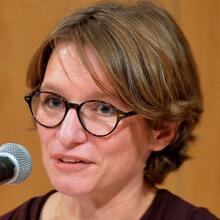Reflecting on Crisis Narratives in Forests: Anthropological Perspectives
Zoom URL TBD
Panel
Panel 2 Presentations (1 hr 15 min)
Reflecting on Crisis Narratives in Forests: Anthropological Perspectives
Break (15 min)
Panel Discussion + Q&A (45 min)
Crises do not always receive the same attention. In tackling crisis narratives and responses, how do crises gain attention – and from whom? When do they lose that attention? Panelists will speak to the conditions of contestation in their site among the various stakeholders, balancing the coverage of novel, emerging threats to tropical forests and crises that are chronic and cyclical. They bring to the panel a wealth of experience with their interlocutors from Malaysia, Nigeria, and Kachin state in Burma.
-
What crises have you or your interlocutors encountered in the forests?
-
How important is narrative framing for these issues? What tensions come from the different types of crisis narratives in the community?
-
What is “crisis” in the local language. How are these conceptions similar or different to an English imaginary “crisis?”
-
What has the role of COVID, as an apparently abrupt crisis, been for those in your site?
-
Bushmeat presents an interesting physical artifact - as a site of consumption, illegality, or commoditization. It has been brought to particular attention given its potential role in virus spillover, giving rise to the contemporary COVID-19 crisis. What is the role of bushmeat or foodscapes in the forest, especially during times of crisis when these practices may have been disrupted?
-
What are the managerial governance practices or solutions that have been brought to bear on these problems?


